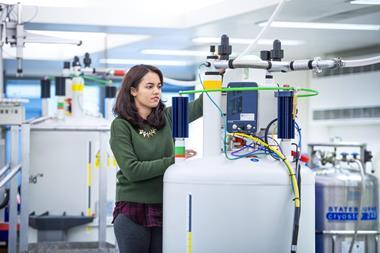National Audit Office criticises way funding decisions are made on science infrastructure
The UK’s National Audit Office (NAO) has recommended changes to the way funding decisions are made in a report that investigated the value of government investment in science infrastructure.
The NAO found the Department for Business, Innovation and Skills (BIS) had spent or committed to spend a total of £3.2 billion on 56 projects since 2007, which it estimates will cost £2 billion to run between 2015–16 and 2020-21. It noted that several of the large projects have been beneficial to science and society noting the successes of the Diamond Light Source and the Royal Research Ship James Cook. But it also pointed out there was no system for assessing whether projects were delivering the expecting benefits, and that in many cases the economic impact of projects were not evaluated.
The report also said there was a need for the BIS to have better ways of making decisions about what to fund in the first place. It said that on occasion, the BIS has had to make decisions on what to invest in at short notice when extra funding has suddenly become available, and that it does not have a good enough system for assessing proposals in these cases.
‘The department has not used good quality information to decide which science capital projects to invest in to optimise scientific and economic benefits,’ said NAO head Amyas Morse in a statement. ‘We regard this, and other shortcomings, as undermining of BIS’s ability to prioritise and deliver value for money on its capital funding of scientific research.’
The report recommended the BIS should develop better processes for handling project proposals and deciding what the priorities should be for the UK’s science infrastructure.












No comments yet